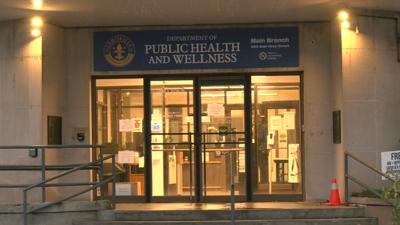LOUISVILLE, Ky. (WDRB) -- Louisville's health department officials are seeing a spike in chickenpox cases.
So far, 14 cases have been reported this year, with seven in November alone. All cases were in people who weren't vaccinated. Chickenpox vaccines first became available in 1995.
Chickenpox is extremely contagious, and can spread through touching blisters or through the air. Symptoms include fever and a rash that often shows up on the face, chest and back first and then turns into itchy blisters.
It's usually a harmless condition that mainly affects children, but Dr. Kris Bryant, associate medical director at Louisville Metro Health and Wellness, said it can become much more serious.
"Complications of chickenpox can occur in people of any age," Bryant said. "One of the most common complications is a secondary bacterial infection. Once those blisters on the skin break open, bacteria can get in and cause an infection of the skin or soft tissue that spreads to other parts of the body. Chickenpox can also result in pneumonia; very rarely it can cause inflammation of the brain or bleeding problems."
Chickenpox can be life-threatening for newborns, pregnant women, and any individuals with weakened immune systems.
Prevention and Treatment
- Children with chickenpox need to stay home from school and childcare until all blisters are dry and have a scab.
- The best way to prevent chickenpox is to get the chickenpox vaccine.
- Everyone—including children, adolescents, and adults—should get two doses of the vaccine if they have never had chickenpox or were never vaccinated.
- Children should get their first dose of the vaccine at 12 to 15 months old and the second dose at 4 to 6 years old.
- Most people who get the vaccine will not get chickenpox. The chickenpox vaccine prevents almost all cases of severe illness. Most people who get the vaccine are protected for life.
Chickenpox cases should be reported to the Louisville Metro Department of Public Health and Wellness by calling 502-574-6675 or via the form on our website.
Related Coverage:
- CDC report shows vaccination rates among kindergarteners continue to drop nationwide
- Louisville health department pushing for more resources to combat monkeypox
Copyright 2024 WDRB Media. All rights reserved.











